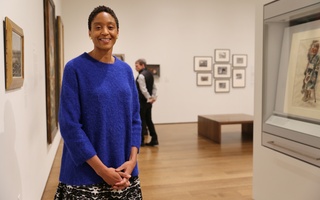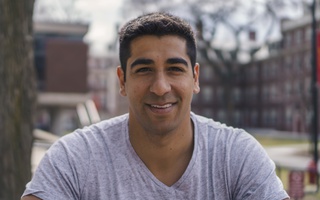She didn’t complain. She sat still on the brown varnished chair as if nothing of significance was occurring. But I could sense her pain: her gag reflex was activated (an instinctive physiological response that prevents choking) and tears were assembled on her lower eyelid, ready to roll down her chapped cheeks. But she held those tears back.
She was a young woman in her early thirties. She had presented herself at the outpatient clinic where I was completing my surgery clerkship to get her tonsils checked. Now, she was put on full display, like a rare artifact at a history museum, so that her malady could instruct us, a group of young medical students. She was suffering from tonsil cancer, a remnant of her struggle with depression and homelessness, which she had attempted to quench through heavy drinking and smoking.
“I am alright,” she kept repeating reassuringly to the attending physician who was examining her.
“Was she lying?” I kept wondering. She was in obvious pain: the metal tongue depressor—cold and laced with alcohol—revealed the large inflamed tonsils. Normally, these almond-shaped structures are docile, but right now these ‘guardians’ of the oropharyngeal tract had declared mutiny against the body they were supposed to protect.
Flustered, I kept thinking of reasons that could explain this young woman’s silence. Perhaps she was scared and thought if she objected, the attending physician might not look after her illness properly. Perhaps she was just shy, and couldn’t articulate how she truly felt. Or, perhaps, it was something more practical, more tangible: She was at a free clinic. After all, she was being seen without having to worry about the initial medical expenses; she was beholden.
In the absence of a supportive physician, it is not uncommon for the patient in such cases to start blaming themselves and believe that their lifestyle choices have denied them the ability to claim their right to fair, compassionate treatment and respect. Rights, they believe, are something that only “regular” people could claim. People with perfect lives running on a perfect schedule, people who have a family, people with houses guarded by perfectly white picket fences.
In exchange for her time, however, we were learning clinical skills that would one day save many more lives. Her poverty was paying for our development.
Although it has been a few years, that image of vulnerability has never really left my mind, and I constantly struggle over what recourse could be made available for people like her. Soon, I will change places with the attending physician and become the one that instructs medical students in their formative years. I am confident as a doctor, but I wonder if I can teach empathy to my future students.
For in our pursuit of excellence in medical care, have we abandoned the most vulnerable?
Medical education and practice around the world are guided by the principles of bioethics. The most important of these is the principle of nonmaleficence, derived from an aphorism used by Greek physicians: “primum non nocere”. It translates to “first, do no harm.” But there is an urgent need to reform the current medical curricula with the understanding that a negative, pacifist conception of being a doctor is not enough.
Medical students must understand how to approach vulnerable populations: the homeless, ethnic minorities, women who have suffered abuse, and more. Instead of focusing solely on the passive goal of doing no harm, we need to focus on developing empathy in medical training—empathy that goes beyond mere collection of clinical information. It can start with training budding physicians on how to initiate and sustain a meaningful conversation with a patient and how to listen when a patient does open up. Students should also be provided some time to reflect—and preferably document—their interactions with patients. These interactions, if recorded properly, will be of immense value in the development of students’ clinical acumen and should furnish them with a space for introspection in the midst of fast-paced clinical rotations.
As the young woman was leaving the room, she wished us, with a broad smile, “good luck for the exams.” Even though she was in pain because of us, she was poised, gracefully handling the situation, beaming in the face of her critical condition. I did not understand why she went through this ordeal and I probably never will. Maybe contrary to her judgment, she was indeed better—better than most regular people.
She was my first lesson in empathy, a lesson that taught me much more about what it meant to be a doctor than any of the library’s thick, hardbound books on medical ethics.
Junaid Nabi, M.D., is a Post-Doctoral Research Associate at the Center for Surgery and Public Health at Brigham and Women’s Hospital in Boston. He is also a graduate student at the Harvard School of Public Health.
Read more in Opinion
Letter to the Editor: Setting the Record StraightRecommended Articles
-
HMS Report: Study Subjects Need ProtectionResearchers need to better protect patients in clinical trials and tighten oversight of medical studies, a national advisory panel headed
-
 Medical School Overhauls Curriculum With Major Redesign
Medical School Overhauls Curriculum With Major Redesign -
 ‘I’m Still Shaking’
‘I’m Still Shaking’ -
 The Harvard Arts Museums Welcome Makeda Best
The Harvard Arts Museums Welcome Makeda Best -
 In Both Spheres: M.D.-Ph.D. Students at Harvard
In Both Spheres: M.D.-Ph.D. Students at Harvard













